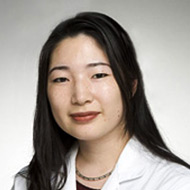
卒業生・同窓生便りの第七回はコロンビア大学医学部助教授の古屋陽子さんからです。あさひでは中学部卒業まで通われ、当初は違和感を憶えたものの、やがて日本人の子孫として日本語や日本文化を学んでいくことに抵抗を感じなくなったようです。大学はハーバード大で英文学を専攻、その後、ペンシルベニア大医学部に進学、野口英世財団の奨学金を受け、日本で研修する機会を得ました。日本での研修は、医学の分野においてもバイリンガルであることの重要性を感じるよい機会となりました。現在は、コロンビア大学医学部の感染症部門で、院内感染や抗生物質耐性の分野の研究に従事、日本の医学関係者とも積極的に情報交換を行っています。古屋さんは、あさひと現地校の勉強を両立させた当時を振り返りながら、日本と米国の二つの世界のベストなものを学んだところであったと意義づけています。
当時の多くのあさひ学園の生徒と違って、私はアメリカ生まれでアメリカ育ちでした。日本には何回も訪問しましたが住んだことはありません。自分自身は「英語より先に日本語をしゃべることを教わった」と聞いていましたが、あさひ学園の1年生に入るころには英語の方が上手でした。したがってあさひ学園は全く新奇で、異質な経験であり、生徒、先生、そして文化などのすべてが自分にとっては未知のものでした。
最初は、日本に行ったときと同じように、自分と似通った人たちに囲まれているにもかかわらず外国人であるような気がしました。着ているものから、笑い方から、そして食べ方も(言うまでもなく言葉のしゃべり方も)すべてにおいて自分は他の人と違っているという「マーク」をつけられていました。しかし次第にあさひ学園で友人を作り、自分の道を見つけることが出来ました。それからはあさひ学園は自分にとっては新しい世界への門口となり、日本にいる祖父母への手紙を書くことが出来るようになったり、またある夏には日本の小学校で過ごしたりして、次第に日本へ行ったときにも以前のように外国人であると感じることはなくなりました。
同時にアメリカと日本の教育システムの違いを知るようになります。アメリカの学校の先生はクラスで自分が沈黙している(静かである)ことを批判しましたが、日本の先生は褒めてくれました。最初はすこし混乱しましたが、結果としては教育や文化に関してユニークな見方をすることができるようになりました。すなわち異なったアプローチ(やり方)には良い点もあり悪い点もある・・・現状に留まっていることを当然であると思ってはいけないということを教えてくれたのです。
高校を卒業したあとハーバード大学に進学し英語を専攻しました。そこで私と同じようなアメリカ生まれの日本人、しかし三世、四世の学生に出会いました。驚いたことに、これら学生の多くは日本語をほんの少し話せるか、あるいは全く話すことが出来ず、ハーバード大学の初等日本語クラスを取っていました。またそのうちの何人かは土曜日の日本語学校に行っていましたが、これらの学校はあさひ学園とは全く異なり、あまり教育的ではなかったようです。このとき初めて自分の両親が無理やりに私をあさひ学園に行かせた意味が理解できたのです。もしそうして呉れなかったら、日本語や日本の文化を全く知らずに安易に育っていたことでしょう。その頃までに、日本人の子孫であれば、日本語を話すことは当然であると本当に考えるようになりました。
ハーバード大学を卒業したあとペンシルバニア大学の医学部に進学しました。そこで日本の病院での研修を受けることができる野口英世財団の奨学金に応募し、認められました。そのとき初めて日本の医学教育を目の当たりに経験することになりました。この奨学金を受けた殆どの学生は日本語を理解出来なかったので、本研修期間中は単なる「オブザーバー」として見ているだけでした。それに引き換え、私は日本語を理解できましたので、患者の世話をしたり、会議の場で意見を言うことが出来ました。また現場の日本の医者にアメリカと日本の医学教育の違いに関する講演も頼まれ、その際に日本語で講演が出来たことを大変な誇りに感じました。
私は現在、ニューヨークに住み、コロンビア大学の感染症部門、クリニック医療科の助教授(Assistant Professor)です。患者の人たちに対してはスペイン語と英語を使うことが多いのですが、時には日本語をしゃべる患者を扱うこともあります。また日本語の患者をもっている他の医者から通訳を依頼されることもあります。いまでも日本で研修を受けたときに知り合った医者とは交流を保っていますが、そのうち院内感染や抗生物質耐性などについての話をする機会ができることでしょう。日本の医療では感染症はいまだに特殊な分野であり、日本の医者は往々にして抗生物質を多用し、その結果として抗生物質の耐性を生み出しています。私はそのような状況を防ぐアドバイスを頼まれることが多いのですが、将来その専門知識や経験を日本の医者とお互いに分かち合うことが出来ればと考えています。
アメリカに住んでいて何故、日本語や、日本の文化や、歴史を勉強しなければならないのかと時々、疑問に思うことがあります。日本に住むことはないことが分かっているのであれば、どうしてそんな無駄な時間やエネルギーを使う必要があるのでしょうか?昔を振り返ってみると、自分の友達は寝ていたり、遊んでいたり、テレビを見ていたりしている全ての土曜日を無駄にし、余分な宿題をやることは大変辛いことでした。でも土曜日を諦めたその見返りが、本当にお金では買うことの出来ない貴重なものであることが最近になって徐々にわかってきました。数え切れない人が、私が幾つかの言葉を流暢にしゃべれて、二つの文化のあいだに生まれたことを羨ましいと言ってくれています。ときにはジャパニーズアメリカンでなければ良かったのに、そしてただ単に日本人、あるいはアメリカ人のどちらかであれば良かった思うときもありました。でも今ではこの二重性が大切であると思うようになりました。アメリカだけでは得ることのできなかった一面を、あさひ学園は私の中に育ててくれました。今では二つの世界のベストなところを得られたことに深く感謝をしています。
Unlike many Asahi students, I was born and raised in the United States. I have never lived in Japan, although I’ve visited there many times. I’m told I learned to speak Japanese before English, but by the time I entered Asahi in the first grade I spoke English better. As a result, Asahi was a completely novel and different experience. Everything was unfamiliar to me: the students, the teachers, the culture.
Initially I felt like a foreigner, as I did in Japan, despite being surrounded by others who looked like me. Everything from the way I dressed to the way I laughed and ate (not to mention the way I spoke the language) marked me as an outsider. Gradually, however, I began to make friends at Asahi and learn my way. As a result, Asahi became my gateway to a new world; I was able to write letters to my grandparents in Japanese, spend a summer semester in Japan attending an elementary school, and generally not feel as much like a foreigner when visiting Japan.
It also allowed me to compare the American and Japanese educational systems. Teachers in my American school criticized me for being quiet in class, while my Japanese teachers praised me for the same thing. This was a little confusing at first, but it eventually gave me a unique perspective on education and culture; it taught me to see the pros and cons of different approaches and not to take the status quo for granted.
After graduating from high school, I went to Harvard University where I majored in English. There I encountered other students like myself, American-born but Japanese by descent. I was surprised to find that a number of them spoke little or no Japanese and were taking beginner Japanese language classes at Harvard. Some of them had even attended a Japanese school on Saturday, but these schools were very different from Asahi and were not always very educational. This was when I finally realized exactly how much I owed my parents for making me attend Asahi. I realized how easily I could have grown up in ignorance of Japanese language and culture. Up till then, I really thought that being of Japanese descent meant that you “automatically” spoke Japanese.
After Harvard I attended medical school at University of Pennsylvania. I had a unique opportunity to get a firsthand glimpse of Japanese medical education when I applied for and was awarded a Noguchi Foundation Fellowship to do a rotation at a Japanese hospital. Most medical students who received this fellowship spoke no Japanese and therefore acted as observers during their rotation. Due to my knowledge of Japanese, I was lucky enough to dive in headfirst and take a more active role in taking care of patients and presenting cases at rounds. I was even asked to give a formal talk to the medical staff about the differences between American and Japanese medical education – I was proud to be able to give the talk in Japanese.
I now live in New York and am Assistant Professor of Clinical Medicine in the Division of Infectious Diseases at Columbia University. Given my patient population, I use mostly Spanish and English at work. However, I do see the occasional patient who only speaks Japanese and am sometimes asked to translate for other doctors when they have Japanese patients. I also still keep in touch with some of the physicians I met in Japan and may be returning to some of the hospitals to speak about my specialty, hospital-acquired infections and antibiotic resistance. Infectious diseases is still a new specialty in Japanese medicine and Japanese physicians sometimes overuse antibiotics, leading to antibiotic resistance. I have been asked to give them some guidance in preventing antibiotic-resistant infections. I hope that I can share some of my professional expertise and experience with my colleagues in Japan, and to learn from them as well.
Sometimes I wondered why I, living in the U.S., needed to learn so much about Japanese language, culture, and history. I always knew I would never live in Japan, so why spend so much time and energy studying these things? Looking back, it was difficult giving up all of my Saturdays and doing extra homework when all my friends were sleeping, playing, and watching TV. But I gradually realized that what I gained in return for my Saturdays was something truly priceless. I’ve had countless people tell me how envious they are that I am fluent in several languages and that I am the product of two cultures. There have been times when I wished I weren’t a “Japanese-American,” that I were just Japanese or just American; I’m sure my life would have been simpler. However, I’ve grown to cherish this duality. Asahi allowed me to develop the side of myself that could have easily been suppressed by my American side. I can now really appreciate the best of both worlds.